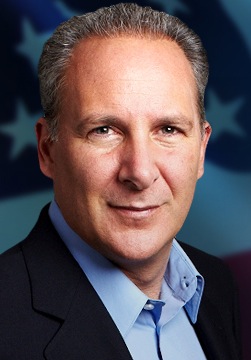Nothing Saved for A Rainy Day
The U.S. economy, which has clearly been a bubble in search of a pin, may have finally found one in Hurricane Katrina. However, if a recession ensues, it will not be Katrina that causes it, but rather America's imbalanced, savings-starved economy, that left it so vulnerable to such a disaster in the first place.
Katrina has struck the American economy at a particularly vulnerable time. By assuming that the sun would shine indefinitely, and that our economic levees (such as rising home values), would product us from ruin, Americans have saved nothing for a rainy day. Today's data on July personal income and spending revealed a 1% surge in personal spending supported by a meager .3% rise in personal incomes. As a result the personal "savings" rate has fallen to a new all time record low of minus .6%
Of course, as is always the case, many naïve "economists" look for the silver lining in the Hurricane's cloud, pointing to the spending necessary to replace what Katrina destroyed as being a benefit to the economy. What such simplistic analysis overlooks is that resources devoted to replacing destroyed wealth are no longer available to create new wealth. Americans will either have to reduce spending in other areas, or postpone such reductions through borrowing.
Since America lacks the domestic savings necessary to rebuild the infrastructure destroyed by Katrina, the money required to do so will have to come from abroad. Not only will America likely go even deeper into debt to rebuild the Gulf Coast, but the extra costs associated with more expensive imported oil will only exacerbate our growing current account deficit. If over-leveraged American consumers finally buckle under the strain of rising energy and debt service costs, causing the Fed to hold off on further rate hikes, the dollar could tumble, causing an economic hurricane far more damaging than Katrina.
With oil prices finally piercing the $70 per barrel level, there appears to be no shortage of commentators expressing amazement at how well the U.S. economy has performed despite the increase. Such false assumptions have lead to fallacious conclusions of another "new era" in which America is no longer vulnerable to "oil shocks."
What such observations overlook is the tremendous increase in debt which has accompanied rising oil prices. Rather than curtailing consumption, Americans have merely responded to higher gas prices by borrowing more money. Therefore, the immediate damage isn't reduced consumption by increased debt. As a result, the actual damage is only being postponed, but with even greater consequences for future consumption, as not only will Americans be required to pay more for energy tomorrow, they will have to pay interest and principal associated with today's purchases as well.
A good analogy would be a man losing his job but maintaining his lifestyle by raiding his kids college fund, plundering his retirement account, taking out a second mortgage on his house, and maxing out his credit cards. A Wall Street "economist" might conclude that his job was really unnecessary, as consumption was not reduced as a result of its loss. However, such a simplistic observation ignores the tremendous accumulation of debt and dissipation of savings. Such has been the case with the entire American economy.
September 1, 2005
Peter D. Schiff
President/Chief Global Strategist
Euro Pacific Capital, Inc.

















